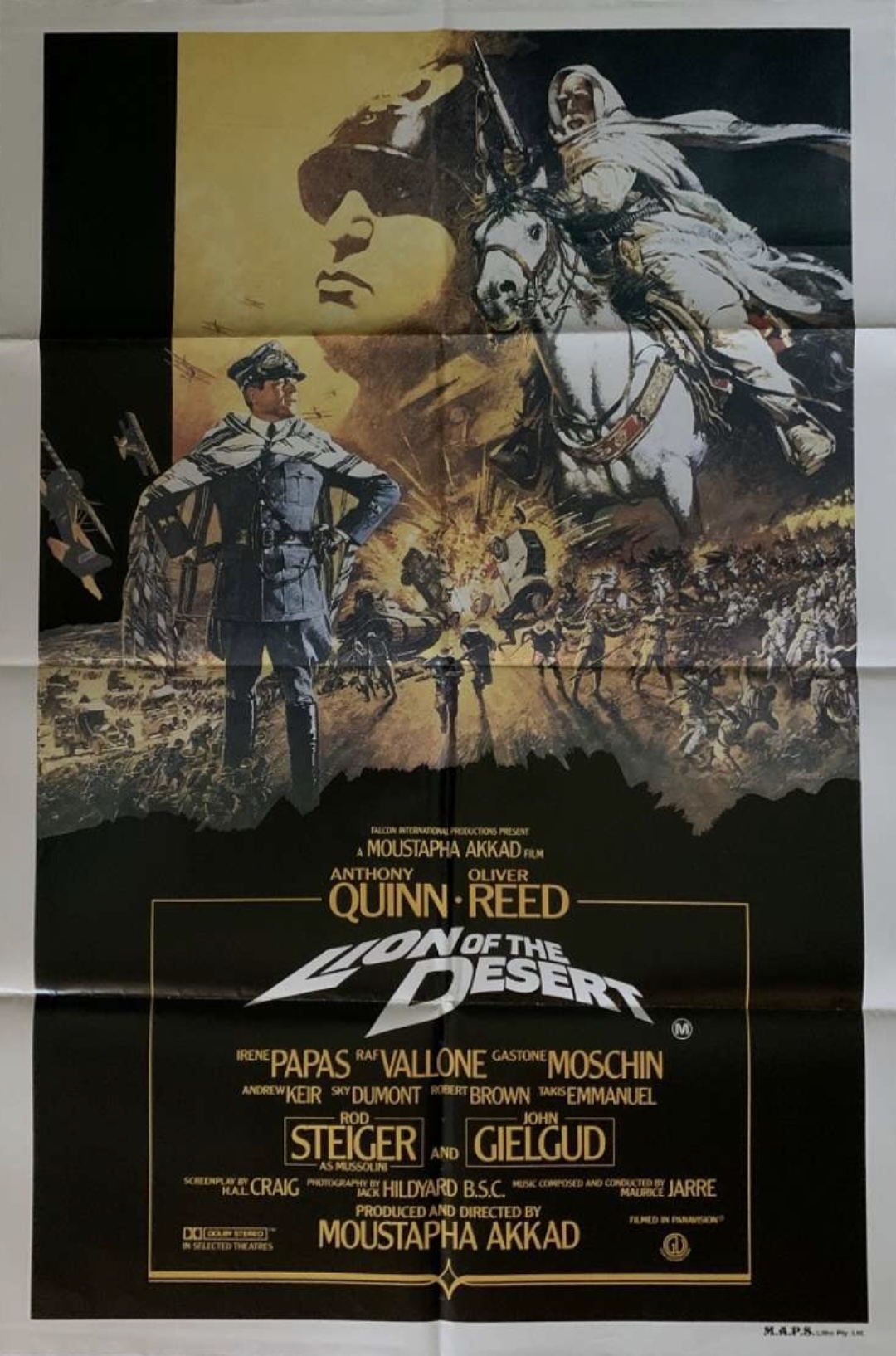colonialism
by Class 5As - Liceo Volta, Turin, ItalyAbstract:
Per colonialismo si intende quel regime politico ed economico in cui un paese controlla e sfrutta un territorio straniero, chiamato colonia, in uno schema di sottomissione e conquista. La colonia è un territorio d’oltre mare, distante dalla madre patria.
Il colonialismo ha spesso comportato l'imposizione di modelli culturali, religiosi e linguistici da parte della potenza colonizzatrice, provocando profonde trasformazioni e talvolta gravi conseguenze sociali, economiche e ambientali per le popolazioni locali. Le principali potenze europee colonizzatrici sono state: Francia, Inghilterra, Spagna, Portogallo, Germania, Danimarca, Belgio, Paesi Bassi, Russia e Italia; i territori più colonizzati sono stati: l’Africa, le Americhe e parte dell’Asia.
L'Italia iniziò le sue imprese coloniali tra il XIX e il XX secolo con l'occupazione dell'Eritrea nel 1885, seguita dalla Somalia nel 1889. Successivamente, durante la guerra italo-turca del 1911-1912, l'Italia conquistò la Libia ed il Dodecaneso in Grecia. Infine, l’Italia ha anche occupato l’Albania nel 1939.
Tuttavia, il periodo coloniale italiano terminò con la Seconda Guerra Mondiale e la fallita guerra in Etiopia, quando le potenze alleate sconfissero l'Italia e iniziò il processo di decolonizzazione.
Colonialism refers to the political and economic regime in which a country controls and exploits a foreign territory, called a colony, in a pattern of subjugation and conquest. The colony is a territory across the sea, far away and distant from the motherland.
Colonialism has often involved the imposition of cultural, religious and linguistic patterns by the colonizing power, causing profound transformations and sometimes severe social, economic and environmental consequences for the local populations. The main colonizing European powers were France, England, Spain, Portugal, Germany, Denmark, Belgium, the Netherlands, Russia and Italy; the most colonized territories were: Africa, the Americas and parts of Asia.
Italy began its colonial enterprises between the 19th and 20th centuries with the occupation of Eritrea in 1885, followed by Somalia in 1889. Later, during the Italo-Turkish War of 1911-1912, Italy conquered Libya and the Greek Dodecanese region. Finally, Italy also occupied Albania in 1939. However, the Italian colonial period ended with World War II and the failed venture in Ethiopia, when the Allied powers defeated Italy and the process of decolonization began.
Etymology:
Colonialism is etymologically rooted in the Latin word "colonus", which was used to describe tenant farmers in the Roman Empire.
The directives through which the individual powers implemented the occupation and territorial exploitation to the detriment of peoples considered backward or savage have been different during the centuries.
The orientations of colonial policy can be classified in three ways: subjugation, the act of defeating people or a country and ruling them in a way that allows them no freedom; assimilation, tendency to equate the colonies and its inhabitants with the metropolis and its citizens; autonomy, a system which, by limiting the interference of the colonial authorities in the social structure of the local population, aimed to prepare the progressive assumption of administrative and political responsibilities by local elements until complete independence was achieved (from: Treccani Encyclopedia; Britannica Dictionary).
Cultural specificity:
"Ambaradan" is an informal Italian expression used to describe a chaotic, confusing, or messy situation.
It originates from the Battle of Amba Aradam (1936) during the Second Italo-Ethiopian War, which was particularly chaotic due to the numerous local independent militia that offered their support to the highest bidder, resulting in a rapidly evolving mess of allegiances and betrayals. The situation, which was believed to be easily manageable with little to no effort for the Italian troops, suddenly got out of control and in retaliation it was chosen to extinguish all forms of resistance in one fell swoop using a dangerous chemical weapon, commonly called mustard gas. This gas caused painful death to soldiers and civilians alike, leaving only a scant few survivors later eliminated by flamethrowers.
.png)
(Istituto Luce)
Over time, the name evolved in Italian slang to indicate any kind of disorder or commotion. This is how a historical war crime has entered into colloquial conversation assuming a lighthearted connotation which starkly contrasts its bloody origin. For example: "Sono andata ai saldi stamattina, ma era un vero ambaradan" [I went to the sales this morning, but it was such an ambaradan]; Metti a posto la tua stanza, è tutto un ambaradan! [Tidy up your room, it's all an ambaradan].
This could be also due to the fact that documents regarding the use of chemical weapons were declassified only in 1996 (Vazzana, 2017), allowing the propagation of the myth Italiani, brava gente [Italian, good people] especially in matters related to colonies.
Nowadays, very few people remember or even know in the first place the origins of the term 'ambaradan' and pass it off as just another expression, completely disregarding the controversial past which lies at its core.
Songs
Songs have always held a significant place in human culture due to the powerful impact music has on our emotions and bodies (Fubini, 2018). This unique characteristic makes music an essential tool in pro-war propaganda, aiding governments in influencing public opinion and fostering alignment with their ideologies. During both World War I and World War II, music played a crucial role in the lives of soldiers and civilians alike. It served to boost morale, strengthen unity and discipline, facilitate coded communication, and commemorate key events. The following two songs, taken from the collection I Canti del Fascismo (De Marzi, 2004), were used to celebrate the victory of the Ethiopian War and to promote the idea that Italian colonization was beneficial.
C’era una volta il Negus [Once upon a Time there was the Negus] (Enrico Frati, 1936). The song celebrates the victory of the fascist army in the war in Ethiopia, making fun of the defeated enemy, the Negus Haile Selassie. The opening phrase of each refrain, in fact, begins like in fairy tales with 'Once upon a time', to indicate both the fairy tale tone of the story and to underline the end of the Ethiopian empire that now belongs to history.
Faccetta nera [Black Face] (Carlo Buti, 1935). This is an Italian fascist song that talks about an Ethiopian woman welcoming Italian soldiers, symbolizing the regime's 'civilizing' mission. The song was used as propaganda to justify the invasion of Ethiopia. Despite the popularity of the song, Mussolini tried to suppress it due to its focus on racial unity.
Besides songs, Italian soldiers were encouraged to leave for the colonies also through postcards of half-naked Black women, with the message that both African territories and African women were there to be conquered.
Problematization:
The process of invading foreign lands and claiming them as an offshoot of one's territory is a concept as old as time. However, the diplomatic and mutually beneficial relationship between mainlanders and local population present during the Greek and Phoenician periods (Larizza, 1929/1993) are a far cry from the rampant and exploitative model of colonization that later arose during the age of the discovery of the new world.
The issue at the core of Colonialism derives from the greed and the desire to affirm the glory of empires and individuals alike that pushes some powers to invade foreign lands not out of necessity, but simply to demonstrate their power or to further the reaches of their influence.
This process eventually expanded to the point of invading foreign territories lacking the means of defending themselves and effectively enslaving the entire population for the benefit and glory of the mainland, and thus completely disregarding the environment, the culture and the livelihood of the people and the land. Colonialism imposed its own culture, religion and education systems, thus leading to the loss of native identities (Dirks, 2000).
Communication strategies:
(The following paragraphs have been 30% generated by AI and then revised by the students)
Proponents of colonialism argue that colonial governments benefit colonized peoples by developing the economic and political infrastructure necessary for modernization and democracy. They bring up former colonies such as the United States, Canada, Australia, New Zealand, Hong Kong and Singapore as examples, which are considered post-colonial successes. However, these nations do not represent the typical course of colonialism, being colonial societies or trading cities.
On the other hand, dependency theorists such as Andrè Gunder Frank (1929-2005), a German-American economy professor, believed that colonialism actually involves a net transfer of wealth from the colonized to the colonizers, inhibiting prosperous economic development. He criticized export-oriented economic policies that, in his view, created negative imbalances in poor countries (Frank, 1967).
Post-colonial critics such as Frantz Fanon (1925-1961) argue that colonialism harms not only the colonized but also the colonizers politically, psychologically and morally. Born on the island of Martinique under French colonial rule, Fanon was one of the most important writers in Black Atlantic theory in an age of anti-colonial liberation struggles (see also foreigness). He published in academic journals and revolutionary newspapers, translating his radical vision of anti-colonial struggle and decolonization for a variety of audiences. His most famous work is The Wretched of the Earth (1961/1963), which serves as a manifesto for the anti-colonial struggle and the emancipation of the 'Global South'. Another notable work is Black Skin, White Masks (1952/1967) which had a strong influence on liberation movements, such as those of Ali Shariati in Iran, Stephen Biko in South Africa, and Che Guevara in Cuba.
Aimé Césaire (1913-2008), a Martinican poet, playwright, and politician, claimed that colonialism degraded and decivilized the colonizers, sowing the seeds of Nazism, which merely applied against Europeans the same methods used by the Europeans in the rest of the world. Together with Léopold Sédar Senghor and Léon-Gontran Damas, he also developed the concept of négritude, an ideology that celebrates the spiritual, artistic and philosophical values of Black African populations (Césaire, 1955).
Subversion:
Films
Movies are essential tools for representing the dark side of colonialism because they visually and emotionally immerse the audience in historical injustice, oppression and resistance. With the help of storytelling, they expose the violence, exploitation and cultural destruction imposed on colonized peoples.
La bataille d'Alger [The Battle of Algiers] (IT/FR; 1966). Directed by Gillo Pontecorvo. The film is about Algeria’s war for independence from French colonialism. It highlights oppression, racism, the violent resistance led by the FLN and French military repression (including torture) to Algerians. Though the FLN was temporarily defeated, Algeria gained independence in 1962. For the themes, the film was banned in France for years. This Italo-French production has inspired several anticolonial struggles - from the Black Panthers to the Palestinian activists. |  |
 |
I dannati della terra [The Wretched of the Earth], (IT; 1969). Directed by Valentino Orsini. Inspired by Franz Fanon's work, the film speaks about an Italian director, Fausto Morelli, who receives as an inheritance the first and last unfinished film by his young African disciple, Abramo Malonga. The director is faced with an interesting but unfinished work. With the help of Malonga’s young widow and notes, the Italian director tries to reconstruct the film, and, after a hard confrontation with himself, he manages to complete it, shooting a satisfactory ending. |
Lion of the Desert (US, Libya; 1980). Directed by Moustapha Akkad. In Fascist Italy pre-World War II, the cruel General Rodolfo Graziani is directly assigned by Benito Mussolini to fight in the colonial war in Libya to vanquish the Libyan nation. However, his troops are frequently defeated by the national leader Omar Mukhtar and his army of Bedouins. To subdue Mukhtar, General Graziani, the 'Butcher of Ethiopia and Libya', uses a dirty war against the Libyans, slaughtering women, children, and aged people. It has to be noted that, in Italy, the film underwent a long censorship as it was considered 'offensive to the honour of the Italian army'. It was finally released only in September 2024 thanks to an Italian NGO (Un Ponte Per - A bridge For) who obtained the ministerial visa for public viewing. |  |
 |
Time to kill (IT; 1989). Directed by Giuliano Montaldo; based on a novel by Ennio Flaiano. The protagonist Enrico Silvestri is an Italian lieutenant in Ethiopia in the mid-thirties. Obsessed with the thought of killing a young local woman, the man is on the verge of losing his mind. "The critical sight on Italian colonialism of the novel is turned to a shallow tale where is instead enforced the traditional view of white male superiority" (Lilli, 2022).
|
Fascist Legacy (UK; 1989). Directed by Ken Kirby. The BBC documentary is about Italian war crimes in the Second World War and their post-war cover-up. It’s divided into two parts: the first talks about Italian atrocities in Ethiopia, Slovenia, and Croatia, including mustard gas attacks, massacres, and concentration camps. The second part talks about British and American complicity in shielding 1,200 Italian war criminals to maintain Italy as an anti-communist ally during the Cold War. It also highlights Italy’s historical amnesia regarding these crimes.
If only I were that warrior (IT, US, Ethiopia; 2015). Directed by Valerio Ciriaci. The documentary addresses the unpunished war crimes by General Rodolfo Graziani committed in the name of Mussolini's imperial ambitions. The director follows the stories of three characters travelling through Ethiopia, Italy and the United States. A journey through life memories and the tangible remains of the Italian occupation of Ethiopia, spanning generations and continents where this often overlooked legacy still binds the destiny of two nations and their peoples. |
Tolo Tolo (IT; 2020). Directed by Checco Zalone. The movie is semi-serious reflection on the legacies of fascism and Italian colonialism. It revolves around the main character of Checco who, after his project of opening a sushi restaurant miserably fails, decides to flee "where it is possible to continue dreaming": that is, in Africa. There, he improvises himself as a waiter for an exclusive resort. Then, Checco meets a group of immigrants and he becomes involved in their lives. In a scene on the lorry overpacked with migrants, he has an 'attack of fascism', so that the scene becomes a harsh attack on the failure to process what fascism was in Italy, and the evidence of how the seeds of fascism are always ready to flourish again, in particular in periods of crises.
|
Decolonial Atlas
On the Decolonial atlas Project we can see some images and graphs that show the aspects and consequences of colonialism.
"The Decolonial Atlas is a growing collection of maps which (..) help us to challenge our relationships with the land, people, and state. It’s based on the premise that cartography is not as objective as we’re made to believe. (...) Because decolonization is a process of unlearning and rediscovering, we’re especially committed to Indigenous language revitalization through toponymy" (https://decolonialatlas.wordpress.com/).
One of the studies shows how colonialism led to the spread of multilingualism even in individual cities. In New York, for example, 700 different languages are spoken.
Visual Arts
Visual art related to colonialism is important because it tells long forgotten stories, denounces the injustices of colonialism and helps restore memory and dignity to oppressed cultures. With images and symbols, it stimulates dialogue between different cultures and addresses current problems such as racism and exclusion. This art is a form of resistance and contribution to social change. It is both a reminder of the forgotten past and an incentive to improve the present.
https://www.kehindewiley.com/exhibitions/ jacques-louis-david-meets-kw/ | Kehinde Wiley replaces originally white and aristocratic protagonists of very iconic paintings of the past with Black people whom he street casts in suburban areas. This act overturns the power hierarchies of Western art by restoring visibility to historically marginalized groups. He gives visibility to the bodies of those who were never represented in the history of art. "A contemporary descendent of a long line of portraitists, including Reynolds, Gainsborough, Titian, Ingres, among others, Wiley, engages the signs and visual rhetoric of the heroic, powerful, majestic and the sublime in his representation of urban, Black and Brown men". |
Peruvian artist Daniela Ortiz confronts colonialism through her multifaceted artistic practice, which includes video, photography, sculpture and illustration. Ortiz tries to undermine the discriminatory symbolic systems present in the artistic heritage, bringing them to light. During a trip to Rome, she showed the continuity between the State's interference in the lives of migrant families and fascist control over motherhood and childhood. The Hidden Histories cycle, created by Locales (Valerio Del Baglivo and Sara Alberani), brings Rome's historical legacy into dialogue with contemporary art to adequately address the issue of Italian colonialism, highlighting the permanence of hegemonic symbols dating back to the Roman Empire and the fascist era (Il manifesto, 2021). |
Essay
In her work (2025), Grace Fainelli, an Italian afro-descendent as she calls herself, provides several points for reflection and discussion on how colonialism has shaped societal perceptions of race and gender. She critiques the dominant narratives that perpetuate stereotypes, like the hypersexualization of Black bodies or the portrayal of Africa as a continent in need of saving. Her work advocates for a 'pluriversal' approach of diverse knowledge systems in order to dismantle the Eurocentric lens that has historically dominated.
The author also emphasizes how media and advertising still reinforce racist and sexist stereotypes, shaping collective imagination. To overcome these prejudices, Feinelli encourages a shift in perspective: it is not just about eliminating problematic words, but about understanding their history and consciously choosing language that does not perpetuate discrimination.
Her work serves as a call to action for individuals to reflect on language and its implications, encouraging a shift towards inclusivity and awareness.
An interview to her is available here:
https://www.repubblica.it/cultura/2025/03/20/video/colonialismo_linguaggio_grace_fainelli-424074072/
Literary works
Novels on colonialism and postcolonialism address the complex relationship between power, identity, and culture, exploring the impact of colonial rule on colonized societies. During colonial times, many works revealed a Eurocentric vision, often justifying imperialism. In the postcolonial period, short stories have given voice to oppressed peoples, denouncing exploitation, racism, and loss of identity, highlighting the resilience of local cultures and the struggle to recover a collective memory. These writings offer a critical perspective on the legacies colonialism and its lasting consequences.
Heart of Darkness by Joseph Conrad (1899) is considered one of the first and most important novels that explores in depth the dynamics of colonialism. Set in the Belgian Congo, it denounces the abuse, exploitation and inhumanity perpetrated during colonial rule, highlighting the brutality hidden behind the European 'civilizing mission'. Through the story of Marlow and his encounter with Kurtz, the novel reflects on the moral corruption and devastating impact of colonialism, both on the colonized and the colonizers.
Wide Sargasso Sea by Jean Rhys (1966).
Jean Rhys, a Dominican-British writer, explores colonialism through the experiences of Antoinette, a Creole woman in post-slavery Jamaica. The novel highlights racial tensions between the descendants of the colonizers and the black population, showing social disintegration and identity alienation. Antoinette, an emblem of a declining colonial legacy, is trapped between two worlds, rejected by both European and local society. Her forced marriage to an Englishman symbolized colonial domination and exploitation. Her eventual alienation reflects the devastating psychological consequences of colonialism.
Discussion:
In the end, we propose some questions for a further reflection on the topic of colonialism and how it affected the territories that were once colonies:
- What do you think defines a colony? Is it just a foreign occupation of the territory? Is it inherently malicious?
- How do you think colonialism has changed the world?
- Is your country under any type of colonialism?
- What were the main economic and cultural impacts of colonialism on colonized nations?
- Do you think colonialism has positive aspects?
- How could food be a sign of colonialism?
References/Further Readings:
Césaire, A. (1955). Discours sur le colonialisme. Éditions Présence Africaine. English trans. (2000) Discourse on Colonialism. Monthly Review Press.
Conrad, J. (1899/2007). Heart of Darkness. London: Penguin
De Marzi, G. (2004). I canti del fascismo. Collana Storica. Frilli.
Dirks, N. B. (2000). Colonialism and Culture. The University of Michigan Press.
Ercolani, L. (2021). Daniela Ortiz. Il conflitto mai sopito nascosto dietro i monumenti [Daniela Ortiz. The never dormant conflict hidden behind the monuments]. Il Manifesto. Oct. 9, 2021.
https://ilmanifesto.it/daniela-ortiz-il-conflitto-mai-sopito-nascosto-dietro-i-monument
Fanon, F. (1961). Les damnés de la Terre. Edition François Maspero. English trans. (1963). The Wretched of the Earth. Groove Press.
Fanon, F. (1952). Peau noir, masque blanque. Edition du Seuil. English trans. (1967). Black skin, white masks. Grove Press.
Fainelli, G. (2025). Decolonizzare lo sguardo. Riflessioni di una donna nera. Spunti per sfidare gli stereotipi razzisti. [Decolonizing the gaze. Refelections by a Black woman. Some hints to challenge racist stereotypes]. Torino: Eris.
Frank, A. G. (1967). Capitalism and Underdevelopment in Latin America. NYU Press.
Fubini, E. (2018). Estetica della musica. [Music Aesthetic]. Il Mulino.
Larizza, P. (1929/1993). La Magna Grecia. Istar Editrice.
Lilli, S. (2022). La banalizzazione dello sguardo. 'Tempo di uccidere' dal romanzo al film [The trivialization of the gaze. 'Time to kill' from the novel to the film]. Il Tolomeo, Ca' Foscari, pp. 61-82. https://www.academia.edu/94068609 La_banalizzazione_dello_sguardo_Tempo_di_uccidere_dal_romanzo_al_film
Mari, S. et al. (2010). The Shadow of the Italian Colonial Experience. The Impact of Collective Emotions on Intentions to Help the Victims' Descendants. International Journal of Conflict and Violence. 4(1).
https://www.researchgate.net/publication/44035902_The_Shadow_of_the_Italian_Colonial_Experience_The_Impact_of_Collective_Emotions_on_Intentions_to_Help_the_Victims'_Descendants
Rhys, J. (1966). Wide Sargasso Sea. André Deutch.
Vazzana, S. (2017). 'Ambaradan'. Quando una parola nasce da un genocidio. ['Ambaradan'. When a words comes from a genocide]. La Stampa. 15 Feb. 2017.
https://www.lastampa.it/cultura/2017/02/15/news/ambaradan-quando-una-parola-nasce-da-un-genocidio-1.34654124
Links:
Fainelli, G. (2025). Decolonizzare lo sguardo [Decolonising the gaze]. Diversity Editor. https://www.repubblica.it/cultura/2025/03/20/video/colonialismo_linguaggio_grace_fainelli-424074072/
Kirby, K. (1989, GB) Fascist Legacy: https://genome.ch.bbc.co.uk/5e524eb5177646b8acaf24f979fa282a
Britannica Dictionary: https://www.britannica.com/topic/education/Colonialism-and-its-consequences
Istituto della Enciclopedia Italiana: https://www.treccani.it/enciclopedia/colonialismo/
Ortiz, Daniela: https://www.daniela-ortiz.com/en
The Decolonial Atlas Project: https://decolonialatlas.wordpress.com/
Wiley, Kehinde: https://www.kehindewiley.com/
How to cite this entry:
Class 5As - Liceo Volta, Turin, Italy. (2025). Colonialism. In Other Words. A Contextualized Dictionary to Problematize Otherness. Published: 09 April 2025. [https://www.iowdictionary.org/word/colonialism, accessed: 23 February 2026]
